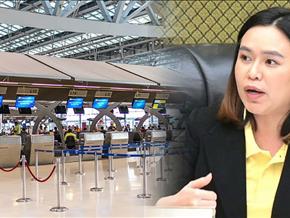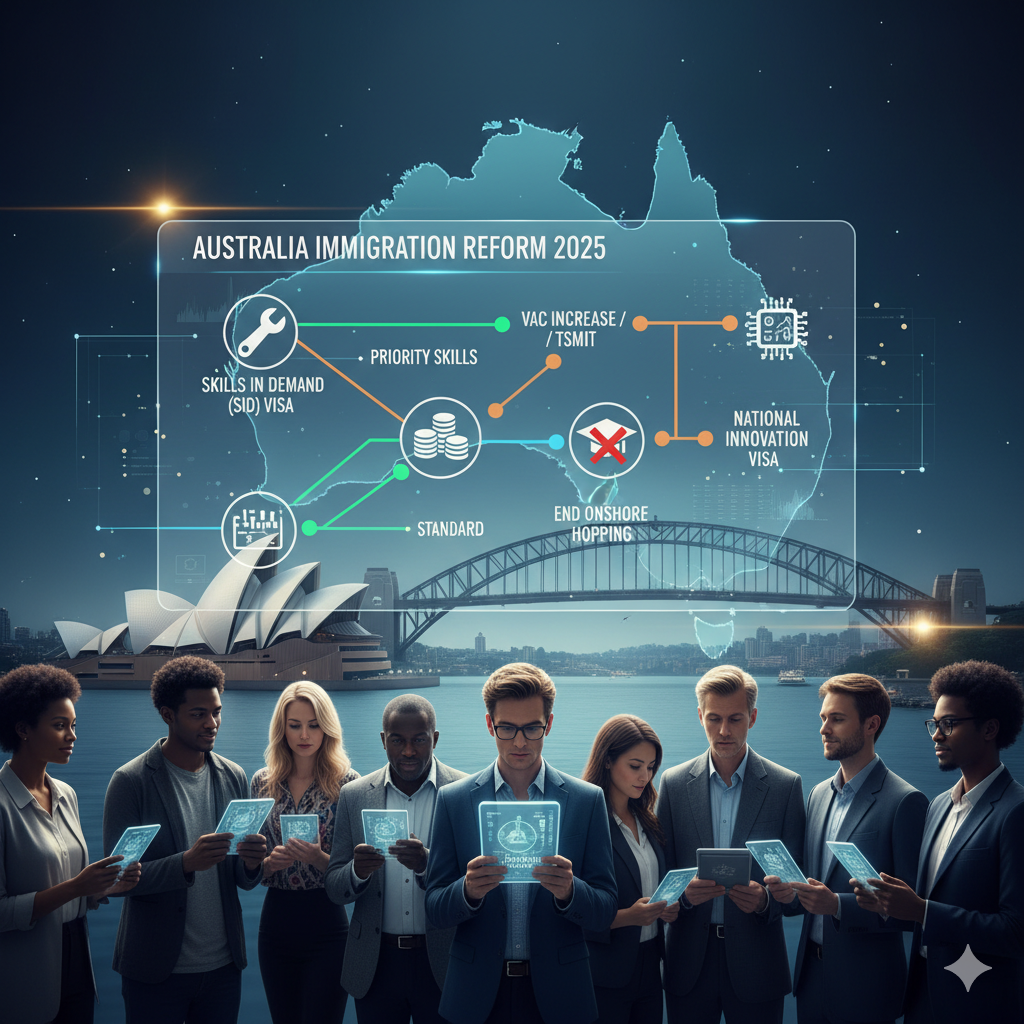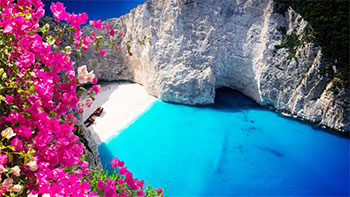
Group travel is undergoing a profound transformation, becoming a dominant force in shaping the tourism landscape across the globe, with a particularly significant impact on the USA, Australia, and New Zealand.As we navigate 2025, this shift is clearly redefining family vacations, exhilarating adventure trips, and conscious eco-tourism experiences.2 Driven by a burgeoning desire for shared memories, enhanced safety, cost efficiencies, and a deep yearning for authentic and sustainable encounters, group travel is moving beyond its traditional perceptions to offer highly personalized and meaningful journeys.
The Global Resurgence of Group Travel: An Overview

The post-pandemic travel environment has fueled a strong demand for collective experiences. Travelers are increasingly seeking companionship and convenience, leading to an exponential growth in group bookings across various demographics and interests. This broad trend encompasses everything from multi-generational family excursions to specialized adventure expeditions and impactful eco-friendly retreats.
Several key factors are propelling this upward trajectory for group travel in 2025:
Personalization and Customization: Modern travelers, whether in a family group, an adventure cohort, or an eco-conscious collective, demand unique experiences.3 Group travel operators are responding by offering highly customizable itineraries, allowing participants to tailor their trips based on specific interests, be it culinary exploration, historical immersion, or specific physical challenges.4
Technological Integration: The adoption of advanced digital tools is making group travel more accessible and enjoyable than ever before. From virtual reality previews that bring destinations to life before arrival, to real-time communication apps that keep group members connected, and streamlined digital booking systems, technology is enhancing every stage of the travel experience.
Rise of Niche Markets: The demand for specialized experiences is driving the emergence of highly focused group travel markets. Wellness retreats, cultural immersion programs, eco-friendly adventures, and voluntourism initiatives are examples of curated offerings that provide more profound and meaningful experiences beyond conventional sightseeing.
Sustainability and Responsible Travel: A growing priority for travelers, particularly in regions like New Zealand and Australia, sustainability is at the forefront of group travel planning. Tour operators are increasingly adopting eco-friendly practices, promoting sustainable accommodations, actively working to reduce carbon footprints through greener transportation, and emphasizing support for local communities. Group travel's inherent collective nature makes it an ideal platform for promoting responsible tourism practices on a larger scale.6
Reshaping Family Tourism: Multi-Generational Bonds and Shared Discoveries
Family travel in the USA, Australia, and New Zealand is increasingly characterized by group dynamics, with multi-generational travel standing out as a dominant trend. As families recover from periods of isolation, the emphasis in 2025 is firmly on creating shared memories and fostering deeper connections through travel.
The Allure of Multi-Generational Travel: Everyone Comes Along!
With over 50% of families reportedly planning multi-generational trips in 2025, the appeal of a collective family vacation is undeniable. Beach holidays continue to be a top choice due to their universal appeal, but the scope of these trips is expanding significantly.
Here's how group travel is specifically impacting multi-generational family tourism:
Enhanced Bonding and Lasting Memories: Group travel provides an unparalleled opportunity for families to strengthen their bonds and create enduring memories.7 These trips offer a much-needed escape from daily routines, allowing for focused interaction and the re-establishment of emotional connections across generations.8 Research consistently indicates that family travel contributes to increased happiness, relaxation, and improved family relationships.
Financial Accessibility: Grandparents often play a substantial role in financing these elaborate group trips, making them more accessible for the entire family. The Baby Boomer generation, comprising a significant portion of grandparents, possesses considerable disposable income and travel budgets, further fueling this segment of the market.10
Accommodation Preferences for Groups: Large families are increasingly opting for private residences, villas, or even exclusive hotel buyouts.11 These choices provide ample space, private amenities, and the flexibility needed to tailor activities and meal arrangements to suit a diverse age range within the group.
Inclusive Adventure for All Ages: Adventure travel is being redefined to accommodate multi-generational groups. This involves curating activities that are exciting yet accessible for various age groups and mobility levels. Examples include:
Soft Adventures: Gentle hikes, nature walks, and wildlife viewing experiences suitable for young children and older adults.
Nature Escapes: Group visits to national parks in the USA, exploring the vast Australian Outback, or experiencing New Zealand's stunning fjords with tailored access.
"Edu-ventures": Immersive learning experiences tied to local traditions, history, or environmental conservation, where families can collectively engage in educational activities.
Wellness and Purpose-Driven Journeys: A growing trend within multi-generational group travel includes wellness retreats that cater to the entire family.12 These might feature family-friendly spa areas, guided mindfulness walks suitable for all ages, and designated "tech-free" zones to encourage genuine interaction. Furthermore, families are increasingly seeking purpose-driven trips that align with their shared values, such as volunteering at wildlife sanctuaries in Australia or supporting local artisan communities in New Zealand.
The Rise of Skip-Generational Travel: A notable and growing trend is "skip-gen" travel, where grandparents embark on trips with their grandchildren, without the parents.13 These often involve destinations with sentimental value for the grandparents, fostering unique and profound bonding experiences that are distinct from full family gatherings.
Reshaping Adventure Tourism: Thrills, Authenticity, and Responsible Exploration

The adventure tourism market in the USA, Australia, and New Zealand is experiencing robust growth, with group travel acting as a significant catalyst. Travelers are increasingly prioritizing unique, high-impact experiences that forge lasting memories and often involve a strong element of local immersion.
Australia: A Prime Destination for Group Adventure
Australia, with its unparalleled natural diversity – from the iconic Great Barrier Reef to the rugged and vast Outback – remains a premier destination for adventure seekers.14 Group adventure tours are flourishing, with a distinct emphasis on immersive, physically engaging, and often environmentally conscious experiences.Key trends driving group adventure in Australia:
Surge in High-Impact Activities: Water sports, including kayaking through coastal inlets, surfing lessons on renowned beaches, and exhilarating jet skiing, are witnessing a massive surge in group bookings, driven by the allure of Australia's pristine aquatic environments. High-adrenaline activities such as scenic helicopter flights over natural wonders and controlled bungee jumping are also gaining immense popularity among group travelers seeking intense thrills.
Demand for "Unforgettable" Experiences: Modern adventurers, including those opting for group expeditions, are demonstrating a willingness to pay a premium for novel, exciting, and truly meaningful encounters that offer a profound sense of accomplishment. This includes guided long-distance trekking in diverse terrains, multi-day cycling tours through scenic routes, and exploring remote, untouched destinations with expert guidance.
Integration with Wellness and Sports Tourism: Adventure tourism is increasingly intertwining with wellness initiatives, evidenced by a growing demand for group activities like yoga retreats set in wilderness areas or mindfulness hiking excursions. There's also a significant crossover with sports tourism, as groups organize trips centered around performance-oriented activities such as endurance hiking, e-biking through challenging trails, and even participating in marathons, blending competitive spirit with community and cultural immersion.
Customization and Niche Adventures: Operators are keenly responding to the strong demand for customized experiences. This includes offering expertly guided, women-centric adventure trips, and family-focused outdoor excursions. There's also a noticeable preference for "soft adventures" and trips to remote locations, reflecting a desire for well-curated, lower-impact travel that prioritizes authenticity.
USA: Vast Landscapes for Diverse Group Exploration
The USA presents an expansive array of adventure opportunities for groups, from its iconic national parks to vast wilderness areas. Group travel facilitates participation across diverse skill levels, often supported by specialized guides and equipment. Noteworthy trends include:
National Park Expeditions: Guided group tours to renowned national parks like Joshua Tree, Zion, and Yellowstone are highly popular, offering curated hikes, responsible wildlife viewing opportunities, and educational experiences tailored to various fitness levels and interests.
Outdoor Sports Retreats: Groups are increasingly organizing trips centered around specific outdoor sports, such as rock climbing, challenging mountain biking trails, or thrilling whitewater rafting, often with professional instruction and stringent safety protocols.
"Glamping" and Immersive Wilderness Experiences: The appeal of combining outdoor adventure with comfortable amenities is driving the demand for group "glamping" trips, where participants can enjoy the beauty of nature without sacrificing modern conveniences, making wilderness accessible to a broader audience.
New Zealand: Group Adventure in "The Land of the Long White Cloud"
New Zealand's breathtaking natural beauty makes it an unparalleled destination for adventure group travel. The country's strong, long-standing commitment to sustainable tourism further enhances its appeal for environmentally conscious adventurers.16
Tramping (Hiking) and Trekking: Multi-day guided tramping trips, especially along the famed Great Walks like the Milford Track or Routeburn Track, are immensely popular for groups, offering immersive and challenging experiences in New Zealand's diverse and stunning landscapes.
Water-Based Adventures: Kayaking through pristine fjords, exhilarating whitewater rafting, and scenic fjord cruises are highly sought-after group activities, allowing participants to explore New Zealand's unique waterways and dramatic coastal environments.
Extreme Sports: For thrill-seeking groups, activities like controlled bungee jumping, tandem skydiving, and zorbing (rolling downhill in a giant inflatable ball) continue to draw significant interest, often facilitated by well-established and safety-focused adventure operators.
Reshaping Eco-Tourism: Sustainable Group Practices and Cultural Immersion
Eco-tourism in the USA, Australia, and New Zealand is increasingly adopting group travel models to effectively promote sustainable practices and facilitate deeper, more meaningful cultural immersion. There's a growing and palpable awareness among travelers about their environmental footprint, leading to a strong preference for responsible tourism options.
New Zealand's Pioneering Role in Sustainable Group Tourism
New Zealand stands as a global leader in sustainable tourism, driven by its comprehensive Tourism Sustainability Commitment. This commitment, aiming for every tourism business to be dedicated to sustainability by 2025, aligns seamlessly with the values of the burgeoning eco-conscious group traveler segment.
Key aspects of eco-tourism group travel in New Zealand include:
Indigenous Māori Principles (Kaitiakitanga): New Zealand's approach to sustainable tourism is profoundly shaped by Māori principles, most notably "Kaitiakitanga" (the guardianship and protection of the land, sky, and sea).17 Group tours, such as those offered by culturally sensitive operators, emphasize the deep interconnectedness between nature and all living entities, actively encouraging visitors to protect and conserve the ecosystem.
Emphasis on Eco-Friendly Accommodations and Green Transportation: Group eco-tours actively promote and prioritize accommodations certified by organizations like Eco Tourism New Zealand, which rigorously implement waste reduction strategies, utilize renewable energy sources, and minimize their overall environmental impact. These tours also prioritize green transportation options, such as train travel or regionally focused journeys that significantly reduce carbon footprints.
Responsible Wildlife Tourism: Group activities within eco-tourism settings strictly adhere to principles of responsible wildlife observation. This includes maintaining respectful distances from animals, minimizing any potential disturbance to their natural habitats, and strictly avoiding feeding wildlife. Many such group tours actively contribute to local conservation efforts and provide participants with valuable education about local flora and fauna.
Deep Community Engagement and Economic Benefits: Sustainable group tourism models are designed to actively support local economies. This is achieved by utilizing local suppliers, hiring local guides who possess indigenous knowledge, and promoting locally owned businesses. Initiatives that actively engage Māori communities not only enhance cultural awareness and understanding for group participants but also provide tangible economic benefits, fostering a sense of shared responsibility for the well-being of the land and its people.
Aggressive Waste Minimization and Regenerative Practices: Group eco-tours actively encourage participants to minimize waste, avoid single-use plastics wherever possible, and even participate in regenerative projects, such as native tree planting. Some operators implement robust waste disposal systems, including comprehensive recycling stations and composting facilities.
Comprehensive Guest Education for Responsible Travel: Many group tour operators in New Zealand implement detailed "Guest Education Plans" to empower participants to adopt eco-friendly practices throughout their trip. This reinforces the universally recognized "Leave No Trace" concept, ensuring that group travel leaves minimal impact on the environment.
USA and Australia: Evolving Eco-Consciousness in Group Travel
Both the USA and Australia are demonstrating an increasing focus on sustainable practices within their group eco-tourism offerings:
USA: Group tours to iconic national parks and pristine wilderness areas are increasingly integrating Leave No Trace principles, emphasizing responsible wildlife viewing, and encouraging participants to support local conservation initiatives. Educational components focused on environmental protection and local ecology are becoming a standard feature in these group experiences.
Australia: The surge in water sports and adventure tourism is closely linked to a growing awareness of eco-tourism principles. Travelers are eager to engage in activities that not only provide excitement but also promote environmental sustainability. Many Australian adventure tour operators are proactively aligning their offerings with sustainability by implementing practices that reduce their environmental footprint and actively contribute to the preservation of unique ecosystems, such as the delicate Great Barrier Reef.18
The Future of Group Travel in 2025 and Beyond: Opportunities and Outlook
While the growth of group travel presents numerous benefits, it also brings forth a set of challenges and exciting opportunities that will undoubtedly shape its trajectory in 2025 and the years to come.
Addressing Overtourism: As group travel continues to expand, managing potential overtourism in popular destinations is paramount. This requires careful planning to prevent environmental degradation and minimize cultural disruption. Group tour operators are increasingly exploring alternative, lesser-known destinations and promoting off-season travel to distribute visitor impact more evenly.19
Ensuring Universal Accessibility: With the rise of multi-generational and diverse group compositions, ensuring accessibility for individuals with varying abilities and mobility levels is crucial. Tour operators are actively adapting by designing more inclusive itineraries, providing accessible accommodations, and offering specialized equipment where needed.20
Policy and Regulatory Frameworks: Governments and tourism bodies will need to proactively develop robust policies and regulations that not only support but also incentivize sustainable group tourism practices. These frameworks will be vital in addressing potential challenges and ensuring the long-term viability of responsible tourism.
Continued Technological Innovation: Ongoing investment in cutting-edge technology will be critical for meeting the evolving expectations of group travelers. This includes seamless online booking platforms, highly personalized itinerary customization tools, and sophisticated on-trip communication systems that enhance the overall experience.
Authenticity and Cultural Connection: Travelers, particularly younger generations, are increasingly seeking authentic, hands-on experiences that resonate with their personal values, including a strong emphasis on sustainability, holistic wellness, and deep cultural immersion.21 Group travel operators who can consistently deliver these enriched experiences will undoubtedly thrive in the evolving market.
Responding to Climate Change Realities: The growing interest in "cool-cations" (travel to cooler destinations) and "last chance travel" (visiting fragile environments before potential irreversible changes) reflects a heightened climate awareness among travelers.22 Group travel providers are proactively adapting their itineraries and offerings to align with these preferences and contribute to environmental preservation.
Conclusion: A Collaborative Journey for the Future of Group Travel
Group travel is an undeniable and powerful force that is profoundly reshaping family, adventure, and eco-tourism across the USA, Australia, and New Zealand.24 It offers a compelling synthesis of shared experiences, significant cost-effectiveness, enhanced safety, and unparalleled opportunities for deeper, more meaningful engagement with diverse destinations.25 As we move through 2025, the group travel industry is poised for continued innovation, with a strong focus on delivering hyper-personalization, upholding rigorous sustainability standards, and embracing inclusivity to cater to the increasingly diverse and dynamic needs of group travelers. This collaborative journey ensures that these collective expeditions contribute positively not only to the enriching experiences of the travelers themselves but also to the preservation and prosperity of the remarkable destinations they choose to explore.
;More Travel News
-
 16-Oct-2021Looking for Best Destinations save up to 15% on Flights
16-Oct-2021Looking for Best Destinations save up to 15% on Flights -
 24-Nov-2025Updated Eligibility Criteria for Khuddam ul Hujjaj (Hajj Service Personnel) Recruitment 2026
24-Nov-2025Updated Eligibility Criteria for Khuddam ul Hujjaj (Hajj Service Personnel) Recruitment 2026 -
 27-Apr-2024A beginner’s guide to top archaeological sites in Pakistan
27-Apr-2024A beginner’s guide to top archaeological sites in Pakistan -
 22-Jan-2023These Countries Send the Most Umrah Pilgrims Every Year
22-Jan-2023These Countries Send the Most Umrah Pilgrims Every Year -
 15-Jul-2024Thailand to Offer Visa Free Entry to 93 Countries from 15 July.
15-Jul-2024Thailand to Offer Visa Free Entry to 93 Countries from 15 July. -
 03-Jun-2023How to find cheap flights in the peak travel season
03-Jun-2023How to find cheap flights in the peak travel season -
 15-Oct-2025New Visa Processing Directive in Store for Australia's
15-Oct-2025New Visa Processing Directive in Store for Australia's -
 05-Mar-2025New Rules & Regulations for Umrah Pilgrims in 2025
05-Mar-2025New Rules & Regulations for Umrah Pilgrims in 2025 -
 28-Apr-2025Umrah Package Holders: April 29 is the Last Date to Depart from Saudi Arabia
28-Apr-2025Umrah Package Holders: April 29 is the Last Date to Depart from Saudi Arabia -
 30-Dec-2025Latest Application Status Updated Status for Government Hajj Scheme 2026
30-Dec-2025Latest Application Status Updated Status for Government Hajj Scheme 2026 -
 18-Apr-2024Indians getting offended by Maldives and now boycotting to travel there
18-Apr-2024Indians getting offended by Maldives and now boycotting to travel there -
 01-Sep-2025Greece Golden Visa Program: Your Gateway to Schengen Freedom and Opportunity
01-Sep-2025Greece Golden Visa Program: Your Gateway to Schengen Freedom and Opportunity
